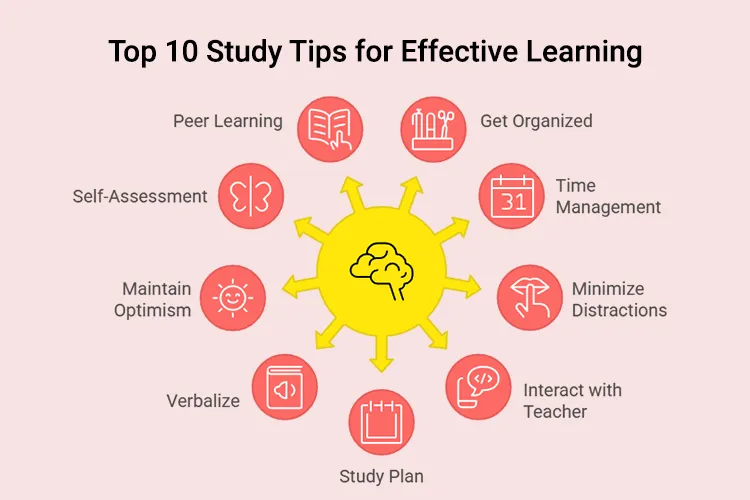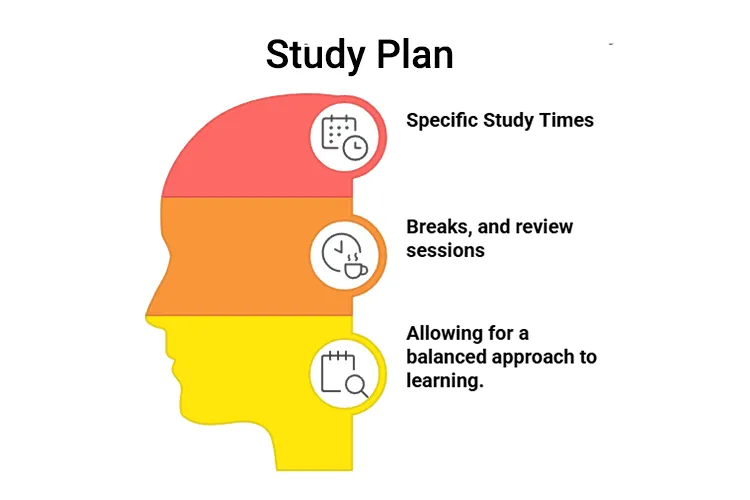Why is it Important to Study Effectively?
Why do some students excel while others struggle to keep up? It's not just about intelligence or hard work. The secret lies in how they study. Effective study techniques can transform the way one learns, making it more efficient and rewarding.But why is mastering study tips for students so essential?
First, with the academic pressures today's students face, studying smart—not just hard—is essential. Research suggests that effective studying techniques can significantly impact a student's ability to retain and understand material, ultimately leading to better academic performance and lower levels of stress. For instance, a study by the Association for Psychological Science found that students who employed active learning strategies, such as self-testing and distributed practice, outperformed their peers who did not use these methods.Let's explore some effective strategies that can help achieve this goal.
 Developing effective study habits is essential for academic success. Here are ten study tips tailored to help students learn efficiently and effectively.
Developing effective study habits is essential for academic success. Here are ten study tips tailored to help students learn efficiently and effectively.
1) Get Organised
Organisation Involves having a clear plan for what to study and when. A well-organised study plan can help reduce stress and boost productivity. Start by keeping a dedicated study planner where you jot down all your assignments, tests, and deadlines. This approach not only helps in keeping track of what needs to be done but also aids in prioritising tasks.2) Time Management
Mastering time management is one of the most effective study techniques. It’s about making the most out of available study time and ensuring that there’s a balance between academic responsibilities and personal time. One method is the Pomodoro Technique, which involves studying for a set period (e.g., 25 minutes), followed by a short break. This can enhance focus and prevent burnout.3) Note-making
Effective note-making is not just about jotting down what’s said in class or written in textbooks. It’s about organising information in a way that makes sense to you. This can involve highlighting- key concepts
- summarising information in your own words
- creating visual aids like mind maps.
4) Minimise Distractions
In today’s digital age, distractions are just a click away. Minimising these distractions means turning off notifications on electronic devices or using apps that limit screen time on certain websites during study hours. Creating a study routine can also help minimise distractions by setting a specific time and place for studying, making it a habit. It’s important to be mindful of what distracts you personally and find ways to mitigate these distractions.5) Interact with Your Teacher & Ask Questions
Interacting with your teacher not only clarifies doubts but also deepens understanding. Teachers can offer different perspectives on a topic that you might not have considered, enhancing your learning experience. By asking questions, students engage in active learning, which has been shown to be more effective than passive learning techniques. Engaging with instructors also allows students to receive immediate feedback, an essential component in the learning process. Students using active learning (self-testing, questioning, peer interaction) score ~54% higher in virtual classroom tests than passive learners.6) Study Plan
A study plan helps in setting clear goals and deadlines, which can improve your ability to focus and retain information. According to research, students who follow a structured study plan are more likely to perform better academically than those who do not. A study plan should include
7) Verbalise
Verbalising what you've learned, also known as the "explanation effect," is the best way to study. This method involves explaining the material out loud, as if teaching it to someone else. When you explain a concept out loud, you are forced to organise your thoughts, clarify your understanding, and identify any gaps in your knowledge. This technique not only solidifies what you know but also highlights what you need to review further, making your study sessions more productive.8) Maintain Optimism
Optimism is linked with better stress management, higher motivation, and improved problem-solving skills. A positive attitude helps in overcoming challenges and setbacks, which are inevitable in the learning process. Optimism can be cultivated by setting realistic goals, focusing on progress rather than perfection, and practising self-compassion during difficult times. Indian adolescents: 81.6% report exam anxiety, 66% feel parental pressure for academic achievement.9) Self-assessment
Self-assessment empowers students to understand their own learning processes and outcomes. By engaging in self-assessment, students develop a keen awareness of their strengths and areas for improvement, leading to more targeted and effective study habits.A simple yet powerful approach is to use think-aloud protocols, where students verbalise their thought process during a task, thereby gaining insights into their problem-solving strategies.Explore MITACSC's courses designed to shape your future and unlock opportunities.

